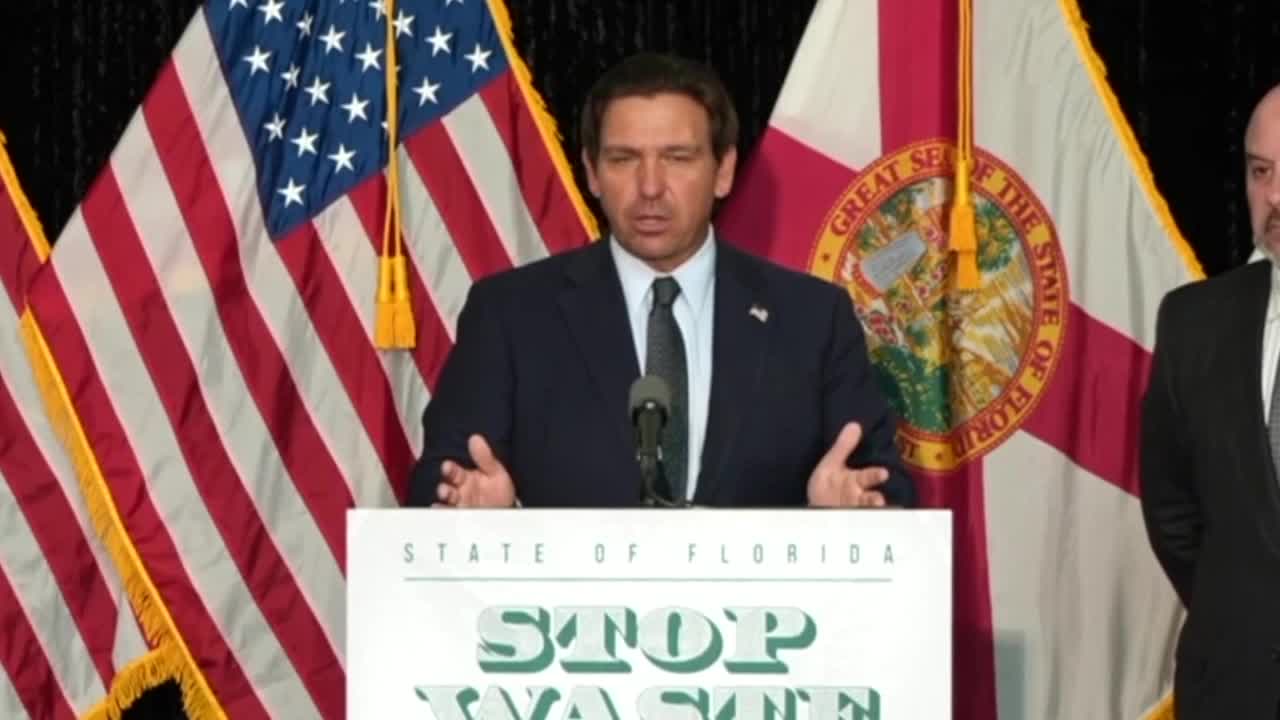TALLAHASSEE, Fla. — Florida’s debate over property taxes is entering a new phase, with Governor Ron DeSantis signaling his administration is close to unveiling a sweeping reform plan — and even hinting that a special legislative session could be called to push it forward.
Speaking this week, DeSantis said his team is finalizing a proposal he wants “big” enough to survive court challenges, legislative hurdles, and voter scrutiny.
Watch full report from Forrest Saunders
“I’m focusing on the Florida resident. I’m focusing on people being able, you know, to own their own home without being squeezed by the property tax,” DeSantis said, outlining a vision that would shield homesteads from property taxes while keeping levies in place on investors, snowbirds, and short-term rental owners.
The governor suggested new restrictions could also force local governments to direct property tax revenue strictly toward core services such as schools, police, and fire — not what he described as “equity officers or other programs.”
Any change would require voters’ approval on the November 2026 ballot, where constitutional amendments need at least 60% support to pass. But first, lawmakers would need to approve the plan with a two-thirds majority — a hurdle DeSantis acknowledged while floating the idea of a summer 2026 special session.
“Right in the middle of the Republican primary season in July or August. Imagine that. I don't think a lot of these guys would want to vote the wrong way then,” DeSantis said.
Legislature Still in Early Stages
The House Select Committee on Property Taxes, led by Reps. Vicki Lopez (R-Miami) and Toby Overdorf (R-Stuart), has been gathering testimony statewide but has yet to produce a concrete plan. Both chairs have emphasized the complexity of the issue, noting the state’s 67 counties face vastly different fiscal realities.
“Any reduction in property taxes may, in fact, and probably will impact the level of services that they receive,” Lopez said.
Overdorf added that while options like rolling back values to 2022 levels and expanding exemptions are under discussion, no proposals are finalized.
“Right now we’re looking strictly at the property tax, and then proposals are going to be start rolling out here in the next month and a half month,” he said.
Lawmakers are expected to release proposals later this fall, potentially advancing more than one constitutional amendment along with companion bills.
Skepticism From Experts
Not everyone is convinced real reform is possible. Former GOP Senator Jeff Brandes, now president of the Florida Policy Project, has criticized state leaders for offering rhetoric without substance.
“What in the world are we really going to do on property taxes? There’s been no real proposal put out there. I keep challenging people… great, show me the real plan,” Brandes said in a July interview.
He warned that eliminating or significantly reducing property taxes would require difficult trade-offs, such as raising the sales tax or funneling state dollars into rural counties to replace lost revenue. That, he argued, could create political fights and threaten essential services like fire and police.
Political Stakes Rising
Despite the uncertainty, Republican leaders say action is overdue. Former House Speaker Paul Renner — who launched his campaign for governor last month — called for meaningful relief but urged caution.
“You have to balance it. You have to give people real relief. You also have to get 60%. And so if you go too far in a direction and you can’t get 60%, it’s not going to pass,” Renner said.
For now, Floridians are left with more questions than answers: What form will relief take? Who will pay for it? And will lawmakers reconvene next summer to fast-track DeSantis’ plan?
What is clear is that property tax reform has become one of the hottest political issues in Florida, one that could shape not only the 2026 ballot — but also the next governor’s race.
Share Your Story with Forrest

Capitol Reporter Forrest Saunders is dedicated to sharing your voice with political leaders throughout the state. He works to hold our elected leaders accountable and amplify your concerns. Let Forrest know about the issues you want state leaders to focus on.
.

Largo family loses home in morning fire, forced to start over
Mother and her nonverbal son with autism 20 escape safely as the home is condemned; community steps in to help with housing and recovery.





